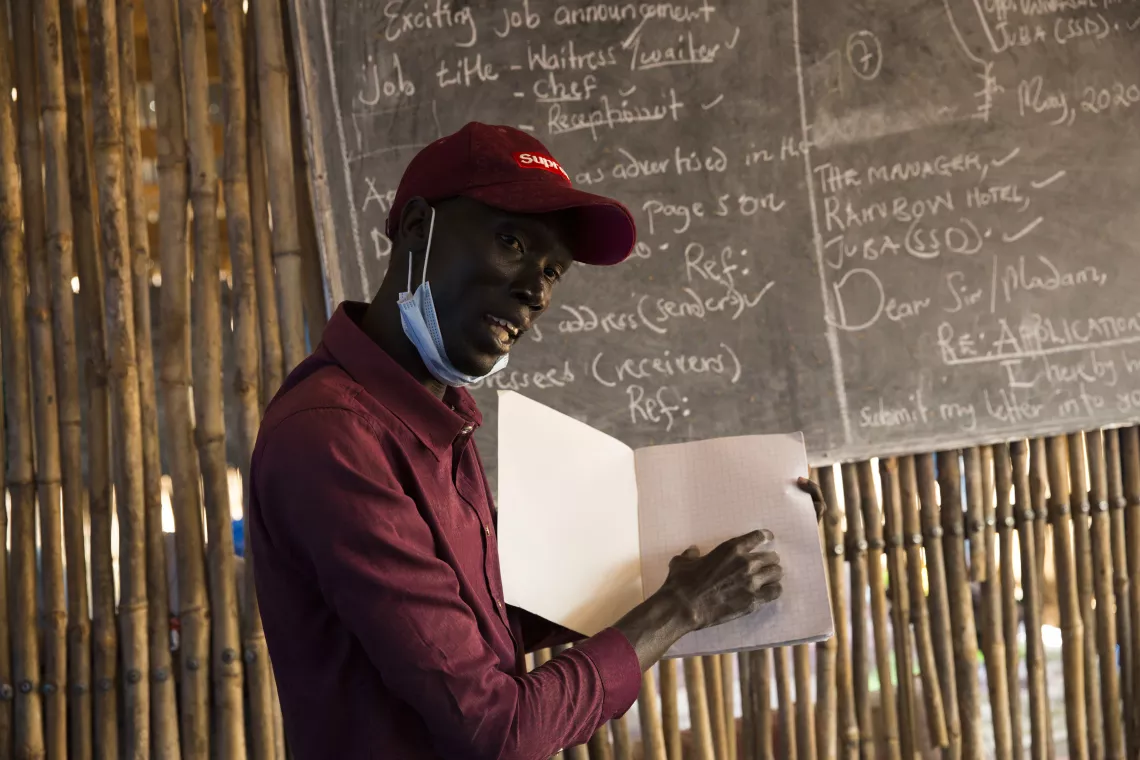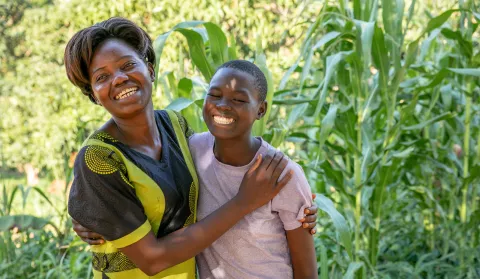Empty seats
The challenge of getting girls back to school after the COVID-19 closure
Several girls are missing. Empty chairs can be found in normally crowded classrooms, and their owners will most likely never return. The COVID-19 closure of schools in South Sudan is a national education crisis, but a catastrophe for girls’ education.
“If the girls are not busy, and engaged in school, some of the parents who don’t know the value of the education may end up engaging the girls in forced marriages,” says Giir Thiik. The 23-year-old is a Primary Eight teacher at the Venus Star Academy where he teaches science and English.

After seven months of closures to reduce the spread of the coronavirus, candidate classes (Primary 8 and Senior 4) in South Sudan reopened last October allowing the students to sit final examinations in March 2021. The COVID-19 restrictions including the closure of schools have exposed girls increasingly to gender-based violence, including child marriage and rape. The resulting pregnancies means that they will not return anytime soon, and most likely not at all.
There is hope, read back in class after 50 years
Brown eyes are gazing at the blackboard over colorful facemasks. Not all girls have dropped out and Nyadak Riak (14) is at her old spot in class. “I’m happy that my daughter is back at school,” Viola Martin (28) says. “My greatest concern [when the schools were closed] was her learning. It was difficult for me to work and keep Nyadak focused on revising for her final primary school examinations,” she says

David Garant Maker (37) knows exactly what Viola is talking about. He has a daughter in primary eight. “During the COVID-19 time when schools were closed and children were home, it was not an easy time,” he recalls and explains further.
“When parents go to the places of work and children are left alone at home, there is a vacuum where no one is looking after the children. With the vacuum comes trouble.”
He applauds all the parents who have managed to keep their teenagers from harm’s way during the seven months they were home. “They should be proud, it is a good achievement… some other parents could not make it,” he says.
Before the COVID-19 closure, 2.8 million children were out of school in South Sudan. The majority is girls due to harmful cultural practices. As all education facilities closed, an additional 2 million children were out of school from one day to another. The Ministry of General Education and Instruction has announced that all schools in South Sudan will reopen 5 April. Only then will we see the true impact of the school closure.

UNICEF and partners will make every effort to bring as many children as possible back to school. We know, the longer children stay out of school, the harder it is to get them back, especially girls.
UNICEF South Sudan is grateful for the generous contributions from the Global Partnership for Education to reopen schools. We are also thankful for the generous contribution from our long-standing education supporters: the EU, the Government of Norway, USAID and UK Aid.




